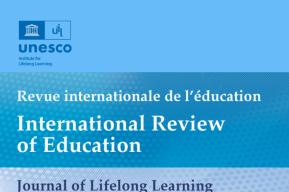
News
UNESCO, NOAA, and USGS

We recognize the critical importance of our marine and coastal ecosystems and the wealth of biodiversity they harbor for the well-being of society as the basis for a new and vibrant Blue Economy. In support of the United Nations’ 2030 Agenda, in particular the Sustainable Development Goal (SDG) 14 ‘to conserve and sustainably use the oceans, seas, and marine resources for sustainable development’, and SDG 15, ‘Protect, restore and promote sustainable use of terrestrial ecosystems, sustainably manage forests, combat desertification, and halt and reverse land degradation and halt biodiversity loss’, the United States and UNESCO intend to collaborate on addressing the challenges highlighted by the UN Decade of Ocean Science for Sustainable Development 2021-2030.
UNESCO is eager to engage with the U.S. government and partners who share our vision for a thriving and resilient marine environment. The U.S. is an important partner for UNESCO in advancing the observation of the ocean, its marine life, and its ecology, and in helping nations focus on wise ocean uses for sustainable development.

With the United States having rejoined UNESCO, we look forward to continued support of the partnership’s commitment to cooperate in ocean science and the observation of marine life for the benefit of everyone. The United States, through the work of the National Oceanic and Atmospheric Administration and the U.S. Geological Survey, continues to support activities that include the management of Marine Protected Areas, coordination of the Marine Biodiversity Observation Network and collaboration with UNESCO’s Ocean Biodiversity Information System and its Global Ocean Observing System. These are some of the activities through which we are enhancing cooperation in biodiversity information and knowledge management supporting sustainable development.
Trusted, interoperable marine life information is at the foundation of this partnership, our collective efforts to advance science and stewardship, and ultimately our ability to manage and protect critical living resources for future generations.
We are working together to promote and foster the exchange of scientific knowledge, expertise, and best practices in ocean biological observations. As we promote this knowledge exchange, we are coordinating advancement and integration of both traditional and emerging technologies, such as environmental DNA, underwater acoustics and imaging, and remote sensing, into our observation system. These advancements will provide multiple streams of data and result in more comprehensive characterizations of our marine ecosystems than ever before, allowing us to better understand and manage this vast environment.
The U.S. Geological Survey conducts integrated science across coastal and marine environments, developing tools and technology, and providing maps, data, and information needed by resource managers and decision makers. The USGS provides this high-quality science in direct support of Everglades National Park, which is on the UNESCO World Heritage List, and we are pleased to be part of this collaboration.
UNESCO is facilitating dialogue and collaboration among scientists, researchers, policymakers, and stakeholders to address emerging challenges and opportunities in marine conservation. We recognize that addressing the complex challenges facing our marine ecosystem requires collaborative efforts. We invite governmental bodies, non-governmental organizations, research institutions, academia, industry stakeholders, and local communities to join hands in the endeavor to use programmes of the UN Decade of Ocean Science for Sustainable Development to develop strategies that look beyond 2030. Through cooperation and sharing expertise, we can create a more robust foundation for the sustainable management of our marine natural capital.
The U.S. National Park Service looks forward to continuing and expanding our collaboration with the UNESCO World Heritage Centre, the World Heritage Marine Managers Network and the Worldwide Network of Biosphere Reserves to share best practices and exchange lessons learned in marine science and stewardship. We know we in the National Park Service have much to learn from our fellow marine managers around the world to help us all better protect our marine and coastal sites for current and future generations.
In addition, the best practices and expertise developed by the UNESCO designated sites, both World Heritage and Biosphere reserves, have the potential to benefit the entire World Network of Biosphere Reserves by being shared through UNESCO Biodiversity Portals. The scientific data made available not only enable Member States to better document and report on their international commitments, but also provide valuable insights for site managers.
The U.S. Biosphere Network (USBN) welcomes this collaboration and is committed to share also its expertise within the 28 U.S. Biosphere Reserves and with the World Network of Biosphere Reserves on key issues such as biodiversity conservation, climate change response, sustainable community development, and youth engagement, with policy recommendations for adaptation actions and communication tools for decision makers, managers, researchers and the general public via both UNESCO Portals.
To ensure future generations can support conservation and sustainable use of our marine and coastal ecosystems, we are facilitating capacity sharing, including coordination on education, basic curricula, and linking national needs with the engagement of early-career researchers in ocean research and applications. Using the UNESCO-designated sites and adjacent marine ecosystems as case studies, we can replicate across the globe the approach of cooperation, transparency, and shared responsibility that we collectively contribute to the conservation and sustainable management of our marine resources. This commitment to collaboration will not only benefit the health of our oceans and our network of UNESCO sites, but it will also safeguard the natural capital that sustains life on Earth.









